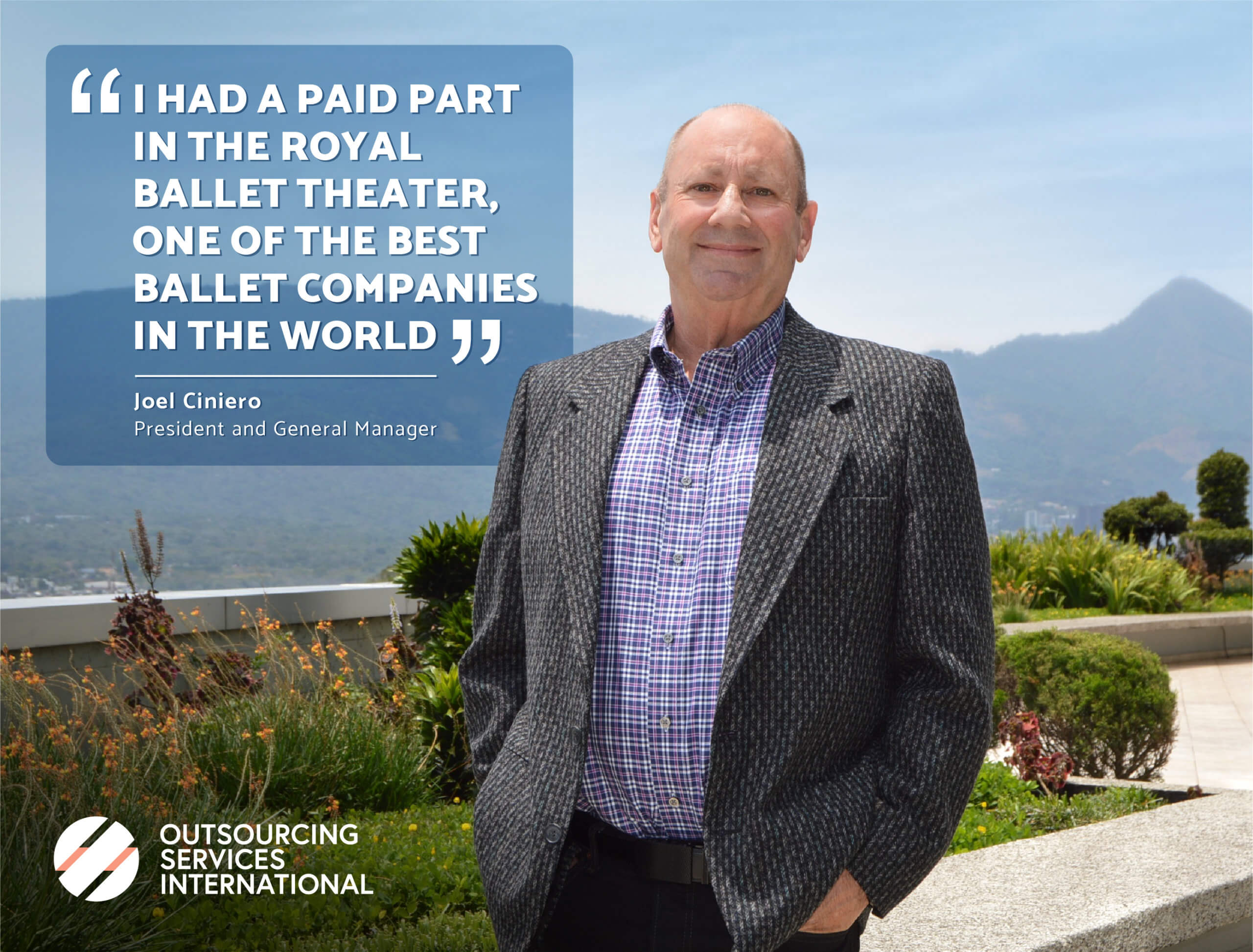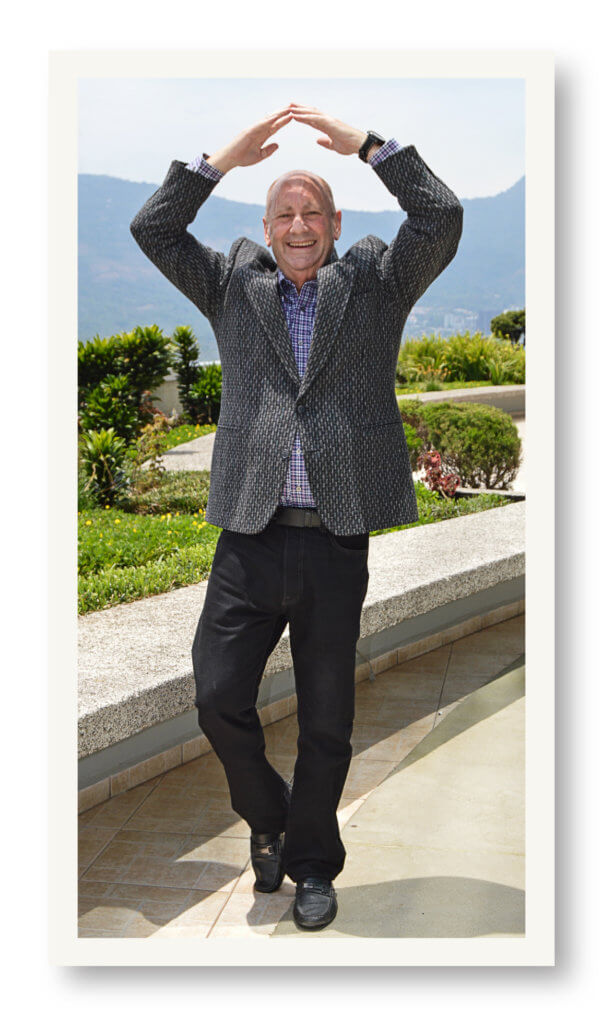Getting to Know OSI’s Joel Ciniero

Joel Ciniero is a key figure in the past and present of Outsourcing Services International. Ciniero has been involved with OSI since its inception and is currently a part-owner and its president, overseeing the day-to-day operations.
Recently, we had the opportunity to speak with Ciniero, an early riser whose interests include Mayan culture and working out. Our goal was to learn a little more about his background, the background of OSI and his hopes for the company moving forward.
Here’s an edited version of our 30-minute conversation.
Question: Tell us a little bit about where you are from and how it shaped who you are today.
Answer: I was born and raised in Los Angeles. I grew up surfing. I love the ocean to this day. I’ve surfed since I can remember, since I was a tadpole, all the way up to college and through my first few jobs. When I was working, I would go to the beach and surf for an hour at 6 in the morning and then go home and get ready for work.
I went to UCLA, which helped shape my vision of who I was and of business. At the time, UCLA was very progressive, and I encountered a lot of unique ideas that I wasn’t exposed to in high school. It helped prepare me for the different jobs I would have in the years to come. It was a highly competitive environment and it helped me learn how to perform to the best of my abilities in an environment of the best of the best.
Q: What did you want to do professionally when you were growing up? What did you want to be?
A: In high school, I wanted to get a degree in oceanography. I was interested in attending the Scripps Institution in San Diego. I later thought I wanted to go to veterinary school. But in my second year of college, I had an epiphany of sorts. I wanted to be involved in business, but I wasn’t sure how to do that, so I was considering becoming a lawyer, and I switched my major to economics and finance.
I worked all through college. I had a job at a big law firm, O’Melveny & Myers. I worked in their library in the afternoon and into the evening. By the time I graduated, I’d convinced myself that I didn’t want to be a lawyer, in part because on my experience at that firm. I knew that I wanted to be the guy who ran the business.
Q: Tell us about a defining moment in your life that led you to where you are today.
A: A defining moment that helped me gain the confidence that would later set me on my career path was my time in the Boy Scouts. My troop leader was a former Marine, so we didn’t make papier-mâché baskets and stuff like that. We packed all over California; in fact, my troop leader took a handful of us on a 50-mile packing trip. We covered 10 miles a day, packed our food, all of our gear, got water from rivers and streams and slept on the ground. Props to troop leader Ed Bullard wherever you are!
I had the opportunity to become part of the Boy Scouts’ Order of the Arrow. To be in this honor society, you had to learn a bunch of outdoors skills, kind of like survivalist skills today. They would drop you in the wilderness and leave you on your own without any food. You basically had a flashlight, sleeping bag and water, and you had to survive for 24 hours, which is a big deal for a kid.
I still reflect positively on the independence that came from that experience. It helped me understand that I could do anything I wanted to, and I didn’t need to rely on anyone else to do it for me.
Q: You have been involved with OSI from its founding. Tell us a little bit about the origins of the company and your involvement with it.
A: I was working for a telecom company that wanted to try outsourcing. In the technology business, which is fiercely competitive, profit margins are defined by the marketplace. Therefore, to maximize your company’s market value, you have to tightly manage expenses—to lower costs and generate more earnings. As part of our efforts to maximize bottom-line profits, we looked for an outsourcing company in Central America. We wanted it to be nearshore and culturally reflective of who we were as an organization. Eventually, we found a partner in the Central American country of El Salvador and we agreed to use them for outsourcing. That was the beginning of OSI. I was there on day-one to train the employees who were going to work for the telecom company, which was based in the U.S.
Q: How has OSI grown since then?
A: On that first day of training, there were 15 employees and we had subleased space in a law firm in San Salvador. I had very little familiarity with El Salvador and I didn’t speak much Spanish, but I had a bunch of anxious young men and women in front of me who were interested in learning. I discovered this from that training session: The work ethic in El Salvador is strong and so is the desire to be successful and grow.
Little by little, the outsourcing was very successful for the telecom company I worked for, and that company was sold to a private-equity firm. After the sale, the outsourcing company, OSI, was interested in getting more clients, so I began working for them. I contacted people I knew, mostly in the telecom and technology business, and sold them on the benefits of outsourcing. As we started to add more and more clients, my partners—the former owners of the telecom company—and I decided to buy OSI. We took it from 15 employees to nearly 200 today.
Q: What’s the most rewarding thing about your job?
A: In all of my years of working in management in the United States, I never offered someone a job and had them cry with gratitude because they will be able to send their kid to a private school or help a sick grandparent. The economic gravity of a job is different in El Salvador. We’re creating jobs where there were none, and that’s really rewarding.
Also, outsourcing is controversial and early on I struggled with it morally, because to many people it means taking jobs from the United States. What I’ve learned is that outsourcing actually benefits a lot of people. For example, it helps make employees in the U.S. more efficient. We’re not taking jobs as much as we are helping highly qualified employees focus on what they do best. Because labor is so expensive in the U.S., companies there hire one person and that person has to do everything. Part of our job is to lighten their workload and allow them to be more efficient. This drives sales and creates more jobs and opportunities in the United States, which is meaningful to me as well.
Q: Tell us a little-known fact about you, something that OSI employees and clients may not know.

A: I had a paid part in the Royal Ballet Theatre—one of the best ballet companies in the world—and I didn’t even have a background in dance.
I had a good friend from England and her mom was a ballet teacher and she worked with the Royal Ballet Theatre. One day I was at their house having dinner and her mom said, “Would you be interested in being in a ballet?” I said, “No, thank you. I have two left feet and can’t dance to save my life.” She said, “The grand finale is a big wedding and we need to create a human aisle. You would basically walk on to the stage in costume as part of a couple and we would tell you what to do.” Again, I said no. Then she said there were three shows and it paid $150 a show, and I said, “Yeah! I’ll do it!” And I did. I performed three shows at the Dorothy Chandler Pavilion, one of the top performing-arts venues in Los Angeles.
Q: What are your plans for OSI moving forward? What do you hope to accomplish?
A: I’ve come to really enjoy Central America. I’ve learned so much about a part of the world that a lot of people ignore. The weather is fantastic, the region is rich in history and culture and the people are so nice. I’d like to expand OSI into another location in Central America. It’s a challenging goal, but I think we can accomplish it.
Q: Is there anything else we should cover? Is there anything you want to add?
A: The word “outsourcing” has many connotations, most of which are negative. But whether we own or run a business or not, we are all consumers of outsourcing at some level. People ask me what I do for a living, and I explain that I work with an outsourcing company, but I’m quick to point out that we don’t really outsource. We’re more of a staffing agency. We provide you with qualified employees who have an education and experience, who are going to do the job as well if not better than a U.S. counterpart.

